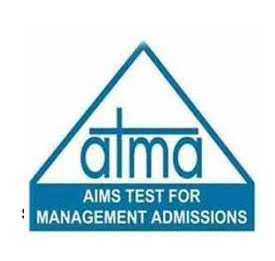Ph.D in Electrical Engineering is a study program at the doctoral level that takes 3 to 6 years to finish. It is perfect for students who want to learn how to handle the modern research and figure out complex engineering problems in areas like power systems, control engineering, signal processing, VLSI design, embedded systems, or green energy technologies. The course includes in-depth academic study, lab work and a lot of thesis research that is supervised by experts.
To get into a Ph.D in Electrical Engineering program, you need to have a Master’s degree (M.Tech/M.E. or similar) from a recognised university in electrical engineering or a related field with at least 55% overall grade. Admission is based on the National-level entrance exams like GATE, UGC-NET or university-level research entrance exams are used to decide who gets in.
The average fees for the Ph.D. in Electrical Engineering range from INR 50,000 - INR 4,000,000, based on the school and study facilities. Some of the colleges offering the PhD in Electrical Engineering course are Amrita Vishwa Vidyapeetham, GLA University, Chandigarh University, BITS Pilani, Anurag University, and Galgotias University.
People who have a Ph.D. in Electrical Engineering can work in fields like flight, energy, robots, automation, semiconductors, and academia. Senior research engineers, system architects, design heads, university teachers, and scientific officers are some of the jobs they often have. There are jobs open in MNCs, study centres, PSUs and global institutions. Starting rates are usually between INR 10 LPA – 20 LPA, but they can go up a lot with experience, working on projects around the world, and being in charge of a project.
Table of Contents
- Ph.D Electrical Engineering Key Highlights
- What is a Ph.D in Electrical Engineering?
- Why Study Ph.D Electrical Engineering?
- Who should study Ph.D Electrical Engineering?
- Ph.D Electrical Engineering Eligibility Criteria
- Ph.D Electrical Engineering Entrance Exams 2025
- Ph.D Electrical Engineering Colleges in India
- Ph.D Electrical Engineering Admission Process 2025
- Ph.D Engineering Syllabus
- Ph.D Electrical Engineering Job Opportunities in India
- Ph.D Electrical Engineering FAQs
Ph.D Electrical Engineering Key Highlights
Below are the key highlights of the Ph.D Electrical Engineering course in India:
What is a Ph.D in Electrical Engineering?
Ph.D in Electrical Engineering students do original study and writes a thesis on a specific topic in the field, like green energy, power systems, control systems, signal processing, microelectronics, VLSI design or signal processing. Students do most of their work on their own, but they also take part in academic conferences, workshops led by experts and group study projects supervised by experienced teachers.
They study basic ideas in electrical engineering, do experiments to figure out what's going on, build and test electronic models, and use math to solve problems in robotics, energy, or electronics that happen in the real world. The goal is to give scholars the skills they need to drive creativity in study areas run by the government, businesses, or universities.
Why Study Ph.D Electrical Engineering?
Ph.D. in Electrical Engineering is a good idea for people who want to learn more about advanced electrical systems, help make smart technologies better, and support progress in academia or the business world.
- Electrical engineers with a lot of experience are in higher demand around the world as people want more energy-efficient systems, automation, and digital connections.
- A lot of people who finish go on to work as teachers, study scientists, systems architects, or tech consultants. They are able to run engineering study projects, write scholarly work, and help new technologies like IoT, smart grids, electric cars and robotics come to life.
- Students in Ph.D. schools learn how to think critically, use simulations and designs, analyse data and work with people from different fields.
Who should study Ph.D Electrical Engineering?
A Ph.D. in Electrical Engineering is perfect for people who are really interested in new ideas, study, and finding hard problems in the area of technology and electrical systems.
- Graduates in electrical engineering who want to focus on advanced areas like signal processing, control systems, microelectronics, power systems, green energy or embedded technologies and want to make a difference in the world through science and business.
- Professionals in electrical and electronics areas who hope to pursue academic jobs as teachers, professors or curriculum developers at technical colleges and engineering institutions globally.
- People who want to lead research and development projects in global companies, government labs, or technology think tanks need to be good at analysis and know a lot about how electrical technologies change.
- People who want to become scholars and have an impact on new ideas, the digital change and cross-disciplinary study in areas such as smart grids, electric mobility, information networks, AI or sustainable energy systems.
- The people who should go to this college are those who want to make a big difference in academia, business or policymaking by combining professional skills with research-based methods.
Ph.D Electrical Engineering Eligibility Criteria
To enroll in a Ph.D Electrical Engineering in India, candidates have to meet some educational and admission requirements. Mentioned below are the Ph.D Electrical Engineering eligibility criteria:
- Candidate must hold a Master's degree M.E./ M.Tech.with at least 55% marks in aggregate or equivalent grade.
- An equivalent degree from a foreign educational Institution accredited by an Assessment & Accreditation Agency
- Admission to PhD in Electrical Engineering is based on the entrance exams scores. Students need to have a valid entrance exam scores in exams such as GATE, UGC-NET
Ph.D Electrical Engineering Entrance Exams 2025
For pursuing a Ph.D in Electrical Engineering in India, various national/state/university-level entrance examinations are required to be taken. Some of the top Ph.D Electrical Engineering entrance examinations in India are given below:
Ph.D Electrical Engineering Colleges in India
Various institutions in India are offering a Ph.D Electrical Engineering course. Some of the best colleges in India for Ph.D Electrical Engineering have been mentioned below, along with their approximate course fee:
Ph.D Electrical Engineering Admission Process 2025
Admission to the PhD in Electrical Engineering course is based on the valid entrance exam score; students need to have a valid entrance exam score in the entrance exams.
For your reference, given below is the step by step admission process followed for the Amrita Vishwa Vidyapeetham for the PhD Electrical Engineering course:
Step 1: Go to the official Amrita Vishwa Vidyapeetham website and fill out the online application form with information about yourself, your colleges, and how to reach you. You can upload scanned copies of your signature, a passport-sized picture, and all of your important academic records. To finish registering, pay the application fee online.
Step 2: Take the Amrita Vishwa Vidyapeetham Entrance Test or show a valid GATE/NET (UGC/CSIR) number if you have one. It checks how good you are at studying, how much you know about the subject and how analytical you are.
Step 3: People who do well on the written test will be asked to come in for a personal interview (PI). You might be asked to talk about your long-term goals, academic background and study plan during the interview.
Step 4: A honour list will be posted on the official website based on the entry test, PI and colleges record as a whole. Those who were shortlisted will be contacted again about the next steps.
Step 5: If you are chosen, you will get an offer of provisional admission. Accept the offer online and pay the fee to confirm your entry through the payment site by the due date.
Step 6: Go to the Amrita Vishwa Vidyapeetham site in person to go through the paper proof process. Bring original things like grade reports, degree awards, photo IDs, entrance test scores and passport-sized photos to prove who you are.
Step 7: Follow the Amrita Vishwa Vidyapeetham fee system and pay the rest of the college fees. As soon as the university confirms receipt of your payment and checks your papers, you will be officially accepted into the Ph.D. Electrical Engineering program.
Required Documents:
- 10th and 12th mark sheets
- UG Certificates
- ID proofs
- Transfer certificate
- Character certificate
- Medical certificate
- Category Certificate (if applicable)
Ph.D Electrical Engineering Syllabus
The syllabus for Ph.D Electrical Engineering in India is more or less the same in the colleges offering the course. The syllabus may slightly differ depending on the curriculum followed by the institute.
For your reference, mentioned below is the PhD Electrical Engineering syllabus followed at Galgotias University, Noida.
Ph.D Electrical Engineering Job Opportunities in India
Ph.D Electrical Engineering graduates can have job roles in multiple fields, and some of the common job roles for Ph.D Electrical Engineering graduates in India are given below:
Ph.D Electrical Engineering FAQs
Does the Ph.D. school in electrical engineering include work experience or hands-on training?
Yes, based on the topic of their study, students do things like set up experiments, run lab simulations, combine hardware and software, or test systems in real time. People who work on robotics, embedded systems, or renewable energy may make and test prototypes, keep an eye on smart grids or go to industry sites to do their work. A lot of them also work on research projects that are paid for by the government or help teach and do study during the course.
What kinds of tools and skills do you learn for your Ph.D. in Electrical Engineering?
MATLAB, Simulink, LabVIEW, PSPICE, and computer languages like Python, VHDL, Verilog, and C++ are some of the tools that Ph.D. students learn how to use. They learn how to use data acquisition systems, create circuits, build embedded systems, use machine learning and make control programs. Using tools like LaTeX, EndNote, and digital libraries like IEEE Xplore and ScienceDirect, they also learn how to share and document their study.
Can Electrical Engineering Ph.D. students work on study that spans different fields?
Yes, study across fields is supported and urged. Students can work with professionals in biological engineering, computer science, materials science, or environmental studies. Electrical engineers might work on smart healthcare systems, transportation networks run by AI, or environmental tracking systems that use sensors. This kind of work across domains helps create unified technological answers and increases the reach of study.











